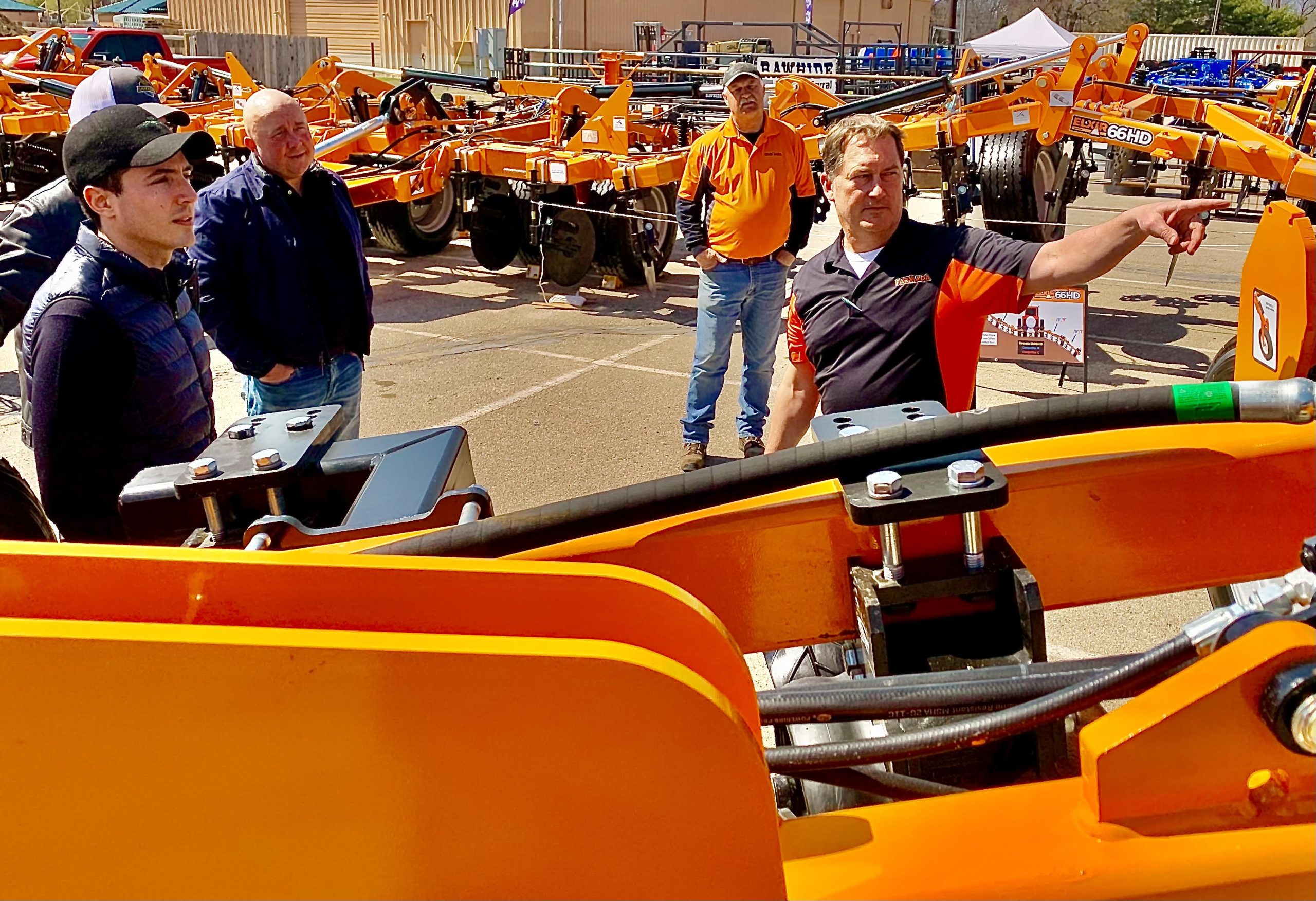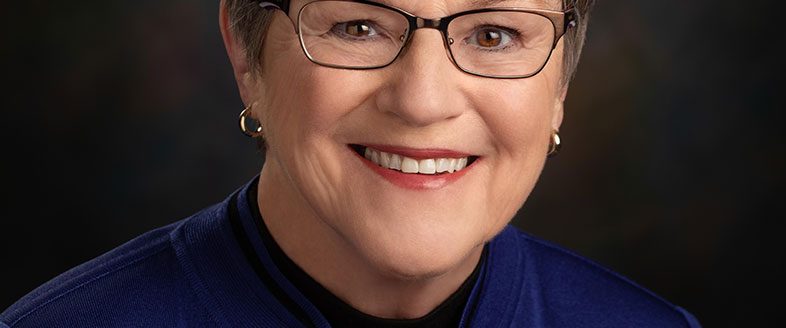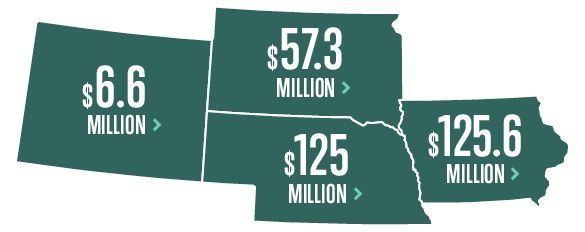Ukraine agriculture plays vital role in war with Russia

Burly bright orange implements displayed on an asphalt parking lot served as a beacon of hope and friendship to a pair of Ukrainian agribusinessmen who recently visited Salina, Kansas.
Smiles pasted the faces of Oleksii Khvorostianyi, and Sergii Kovalchuk as they approached their American friends at the Mid America Farm Expo March 21, embraced them like family, and presented gifts from their country.
Embroiled in a tragic and deadly two-year war with Russia, the men from the battered Ukrainian capital of Kyiv, came to Kansas on a mission for commerce, and stressed they were not government officials.
Both men spoke of the senseless killing and two years of being ravaged by Russian missiles.
“We have lost close friends, many people we know,” Kovulchuk said. “There are lots of tragedies, young people who were killed.”
Khvorostianyi spoke of watching from his balcony as swarms of drones, 50 to 60 at a time, buzzed by, carrying bombs. Sounds of war are everywhere, they said, most notably the constant air raid sirens.
Ukraine has not backed down, and the country is determined to fight back the Russian invasion, the visitors proclaimed, but they can only hope to ward off fighting rather than expect a final end to the conflict with their bully neighbor.
There is more than one way to fight a war, they said, and Ukraine is determined to out-smart the enemy.
The men’s return to Kansas is part of a plan for humanitarian aid through the agricultural community.
“We’re here to show we’re here, and to develop our economy,” Kovalchuk said.
They marveled at equipment at the farm trade show, and listened intently to pitches from Farmada, of Salina, and Shield Ag, of Hutchinson.
The Ukrainians forged a business alliance some four years ago with Daniel Rauchholz, president of Farmada, who was helped by Mike Bergmeier, owner and president of Shield Ag. They collaborated to develop and supply Ukrainian customers with implements that could handle the rigors of farming in their country.
“They needed (row-crop farming) units, and we partnered with Daniel to fill that market,” Bergmeier said.
Their relationship blossomed beyond equipment sales. Bergmeier and others from the Hutchinson community teamed to raise $40,000 in nonlethal aid for Ukraine, providing food, first aid kits and other goods to the war-torn country.
“We bought a portable X-ray machine to use in the field in 2022,” Bergmeier said.
That same year, with the help of Katie Sawyer, state director for U.S. Sen. Roger Marshall, a Kansas Republican, sent supplies of ballistic vests and helmets to Ukraine that were donated by Kansas law enforcement.
“We tried to put our money where our mouths are,” Bergmeier said.
While working as an intern for the Kansas Department of Agriculture, his daughter, Olivia Bergmeier, spent some of 2019 in Ukraine photographing Ukraine’s farming practices.
Sign up for HPJ Insights
Our weekly newsletter delivers the latest news straight to your inbox including breaking news, our exclusive columns and much more.
“It was a surprise to go halfway across the world. We speak differently, but we are the same,” Olivia Bergmeier said. She is currently working as a reporter for the Salina Post.
In the photo above, Farmada President Daniel Rauchholz, right, points out a feature on his Elixir 64 high speed, low disturbance fertilizer applicator, to Ukrainian agribusinessmen Sergii Kovalchuk, left, and Oleksii Khvorostianyi, during their March 21 visit to the Mid America Farm Expo in Salina, Kansas. Looking on at back right is Darren Zerr, Farmada sales manager. (Photo by Tim Unruh.)
Trade is the answer
Khvorostianyi and Kovalchuk sat down in a camper at the farm show, offered by the Kansas Commission on Veterans Affairs, and made it very clear they were not in the United States seeking more help from the government; only to make more trade connections.
They expressed appreciation for the $75 billion in U.S. assistance to Ukraine, but added that more help would be needed. Kovalchuk advocated lend-leasing equipment and repaying for more help.
“If you want to win this war, weapons are critical. The aid should be 95% for weapons,” Khvorostianyi said.
But he is realistic about the head-to-head conflict.
“Even with the help of the U.S., we will never (defeat) Russia, front to front, even with American weapons,” Khvorostianyi said. “We should be much more clever than them.”
A return visit
The two men and others have visited Kansas before, in 2020 and again in 2021. Since then, their work focus has shifted to another form of a war effort, to put their country back to work, and convince some 7 million people who fled the country to return.
“We have to do it now,” Khvorostianyi said. “There is a front line, but the rest of the country is working.”
They represent the agriculture and food sectors and are members of the Ridne Food Consortium of 25 small- and medium-sized farms, 11 food factories and a distribution center.
Those groups are operating in cooperation with a number of U.S. and other international organizations, including the Howard G. Buffet Foundation (Warren Buffet’s son), Global Empowerment Mission, GEM, and World Vision.
Farmers grow the food and the factories turn it into into simple side dishes, such as split peas, barley, buckwheat, and wheat groats, rice, macaroni, canned meats vegetables and sauces, that are sold to the foundations and distributed to the front line and needy people near the war zone. The organizations deliver 120 truckloads of aid a month.
Translated, Ridne stands for “feelings of home,” or “close to the heart.”
“These organizations working with Ridne have a good reputation of presenting aid,” Kovalchuk said.
Multi-prong strategy
The multi-pronged strategy of the agribusinessmen involves restoring a healthy way of life while not bowing to the propaganda that is spreading throughout the globe.
“It is very easy to manipulate people,” he said. “We are an example of using Western support for our economy. The war effort influences more than war.”
Long conflicts are common on the other side of the globe, Khvorostianyi said, pointing out that North and South Korea have been at war since the 1950s. Germany and France also have often been on opposite sides of conflicts, he said, “for hundreds of years. Unfortunately for our country, sometimes front to front has to stop.”
Khvorostianyi predicted no clear end to the war, only an extended cease fire.
But no one can relax.
“At this moment,” he said, “we should continue to prepare for the next war.”
Putin’s forces have their own strategy, Rauchholz said, and it’s easy to interpret. He worked in international sales for 20-plus years.
“Russia likes frozen conflicts, to keep the region unstable, so the Russians can maintain control,” Rauchholz said. “Russia knows that (Ukraine) can’t join NATO (North Atlantic Treaty Organization) as long as there is a territorial dispute. The Russians know exactly what they’re doing.”
Khvorostianyi maintains the focus should be on improving Ukraine.
“We should be strong as a country, with or without NATO,” he said. “Russians are like hooligans in a yard.”
Rauchholz applauded Ukraine’s stubborn resolve.
“They’re resilient and very creative. If they can win this war, they’re gonna be all right economically,” he said. “The Russians are openly saying they want to change the world order that has guaranteed global prosperity since 1945.”
Rauchholz sees the current war as a global problem.
“If we treat this as a little regional conflict, if Ukraine falls or if it stays a frozen conflict, sooner or later American soldiers are gonna be involved,” he said. “My heart goes out to Ukraine, but I’m concerned for the world.”
Tim Unruh can be reached at [email protected].
FACTOID No. 1
As of Feb. 21, more than 45,000 Russian soldiers had been killed since the start of Moscow’s full-scale invasion, according to Mediazona and the BBC’s Russian Service.
Ukrainian President Volodymyr Zelensky reported Feb. 25 that 31,000 Ukrainian soldiers had died in action in the two years since Russia launched the invasion, according to The Associated Press.
As of Nov. 21, 2023, at least 10,000 civilians, including more than 560 children, had been killed, and more than 18,500 had been killed in Ukraine since Russian launched its full-scale armed attack against Ukraine on Feb. 24, 2022, according to the United Nations Human Rights Monitoring Mission in Ukraine.
FACTOID No. 2
The Biden administration and Congress directed approximately $75 billion in assistance to Ukraine—humanitarian, financial, and military support—the Kiel Institute for the World Economy, of Germany, reported Feb. 23.
The U.S. has announced a new $300 million military aid package for Ukraine, while additional funds for Kyiv remain blocked by Republican leaders in Congress, as reported March 12 by reuters.com.



